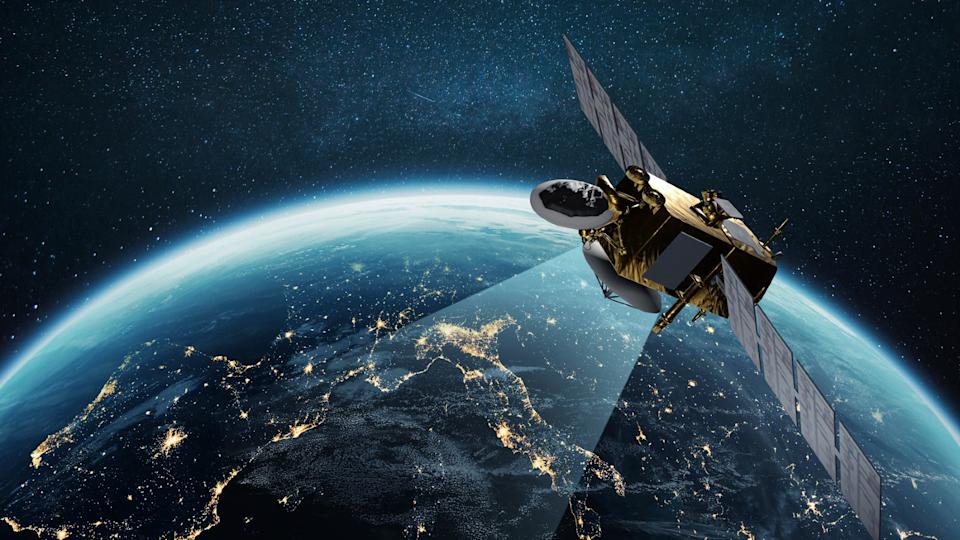The Rise of Space Piracy
For centuries, pirates have been a danger to sailors, hijacking ships and stealing valuable cargo. Now, this age-old problem is making its way beyond Earth’s atmosphere. As space becomes a hub for commercial activity, a new kind of pirate is emerging—one that doesn’t sail the seas but instead operates in the vastness of space. Space piracy, once a concept in science fiction, is now a real and growing concern.
The first signs of space piracy are already here. Hackers have attempted to take control of satellites, disrupting communication networks and targeting sensitive data. These digital attacks can have serious consequences, affecting everything from internet services to global financial systems. If a hacker gains control of a crucial satellite, they could demand payment in exchange for restoring its functions. This is a form of space extortion that is becoming increasingly possible as more commercial entities enter the space industry.
Ground-based facilities, such as launch sites and space control centers, are also potential targets. These locations are essential for managing satellites and spacecraft. If they are compromised, it could lead to disruptions in global communications, navigation systems, and even military operations. Criminal groups could target these locations, holding them hostage in exchange for large sums of money or political leverage.
The Threat to Space Assets
Space piracy is not limited to digital attacks. Physical attacks on space assets are another growing concern. Satellites, space stations, and other valuable space infrastructure are vulnerable to hijacking. Unlike on Earth, where law enforcement can intervene in criminal activities, space lacks immediate security responses. If a satellite is taken over, it could be used to spread misinformation, disable important services, or even conduct espionage.
Another concern is space tourism. With private companies now sending civilians into orbit, space pirates could see an opportunity to hijack a spacecraft. Criminals could demand ransom for the passengers or threaten to damage the spacecraft unless a payment is made. Since there are no space police or military patrols guarding commercial spaceflights, the risk of hijacking is a real possibility.
Cargo shipments to space stations are another vulnerable target. Future space stations will rely on regular deliveries of food, equipment, and fuel. Pirates could intercept these shipments, creating serious disruptions for astronauts and commercial operations in space. This kind of piracy could be used as a way to blackmail space agencies or private companies into paying huge sums to secure their supplies.
One of the biggest concerns is the targeting of satellites involved in global trade. Many industries, including shipping and banking, rely on satellite systems for smooth operations. If criminals take control of these satellites, they could cause widespread disruptions. A pirate group could, for example, hijack a satellite used for ship tracking and demand payment before restoring its service. Such an attack would impact international trade and potentially cause billions of dollars in losses.
Steps to Combat Space Piracy
Addressing space piracy requires urgent action. First and foremost, governments and private companies must invest in stronger cybersecurity measures. Satellites and other space assets must have advanced encryption and security systems to prevent hacking attempts. Companies involved in space operations must follow strict security protocols to minimize the risk of cyberattacks.
Rapid response capabilities are also necessary. Currently, if a commercial space station were hijacked, there would be no quick way to intervene. There is an urgent need for small, fast spacecraft that can respond to space-related crimes. These spacecraft could be used to intercept hijacked satellites, provide assistance to space travelers in danger, or neutralize space-based threats.
International cooperation is essential in dealing with space piracy. No single country can tackle this issue alone. Global agreements and treaties need to be established to regulate space security. A specialized space security agency could be created to monitor threats and coordinate international efforts to combat space crimes. The United Nations, despite criticism, could serve as a platform for discussing global space security policies.
Another approach is to involve military organizations in space security. Navies have centuries of experience in fighting pirates at sea, and similar strategies could be adapted for space. However, current laws do not allow naval forces to operate in space, meaning legal changes may be necessary to allow military intervention in cases of space piracy.
As space continues to be explored and commercialized, the risks of piracy and criminal activities will only increase. Without proper security measures, space could become the next frontier for crime. Strong cybersecurity, rapid response solutions, and international cooperation will be essential in ensuring that the vast reaches of space remain safe for all.




